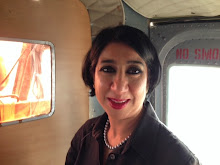"Across America today Senator Edward Kennedy is rightly mourned as one of America’s greatest advocates of social justice. Around the world he is mourned as a great internationalist who inspired social progress in every country.
Northern Ireland is today at peace; South Africa is free of apartheid; more children not only in his nation, but in the poorest nations, are going to school and have health care. We owe a great debt to the vision and courage of Ted Kennedy.
I was fortunate to get to know Ted years ago. He invited me to visit him on Cape Cod during a number of summers in the 1990s. Almost immediately, even as he masterfully navigated us around the Cape in his boat, our discussions focused on what America and Britain could do together to tackle the scandal of child poverty. At the dinner table where he had sat with his father, brothers, and sisters and been interrogated himself, he interrogated me about current events — as I suspect his father had done with him.
He asked in detail what Britain was doing on health care, welfare, and education, about our international engagement on disarmament and later, terror. His abiding interest in an Irish settlement helped the United Kingdom enormously. He was a massive force in bringing the factions together to make peace in Northern Ireland possible. This was one of the many reasons why this year Her Majesty The Queen awarded Senator Kennedy an honorary British knighthood.
He is remembered in America for a record as a lawmaker that surpasses those of many presidents. He inspired us in Britain when he pioneered Head Start to give children a better chance in life and fought on to extend internet access to students in their classrooms. Of course, the cause of his life has been universal health care for all American citizens. He knew what America did would have an influence on the progress of health care in every part of the globe. He pioneered and won the fight for children’s health, from the children’s nutrition program in 1972 to passing the children’s health insurance plan in 1997. He never ceased fighting for universal health care. As he said only last month, “we’re almost there.” He did this not only for America but for the world. He knew that if a system of universal health care as a right and not a privilege could be achieved in the United States, others everywhere would be encouraged to take it up.
I found that Ted had very strong connections with Britain; he remembered how he lived here during his father’s period as ambassador. He was a young boy, and his brother Bobby 12 or 13, when they performed the opening ceremony for London’s famous zoo — only a stone’s throw from the ambassador’s residence.
A few years ago, Ted came back to host a luncheon of Kennedy Fellows in the conference room of the zoo. On that occasion, I asked him to meet churches and nongovernmental organizations in Britain. He played a powerful part in building a global coalition to confront child poverty in every country. As he said, the cause of those children shall be our cause — for as long as one child in one country still lacks basic health provision, basic education, basic human rights, our fight must go on.
This is how I will remember Ted Kennedy: ‘‘The pursuit of the presidency is not my life; public service is,’’Ted once said to his great friend Bob Shrum. And his work teaches timeless lessons about serving the public — the need to reach out beyond ancient loyalties and old enmities, the need to unite rather than divide, our capacity to master the great issues. Kennedy’s family inspired a whole generation of people into public service. In his inaugural, President Kennedy told of how the “trumpet summons us again” to join in a “struggle against the common enemies of man: tyranny, poverty, disease and war itself.” In Cape Town six years later, Robert Kennedy spoke against apartheid and said that the world could be made anew because we could “sweep down the mightiest walls of oppression and resistance.”
In the way his brothers did in their time, Senator Kennedy’s speech at the 1980 Democratic convention set the tone for radical politics for the next two decades. It was a great speech that had a great influence on me — one of the great speeches of our generation. It laid out his life’s work, and ours.
“It is the glory and the greatness of our tradition,’’ he said then, ‘‘to speak for those who have no voice, to remember those who are forgotten, to respond to the frustrations and fulfill the aspirations of all Americans seeking a better life in a better land.” He said: ‘‘The dream shall never die.’’
Last year after he was struck by illness, he spoke at another Democratic convention and said something even more powerful: that we are entering “a season of new hope.” The dream lives on, he said — and it will, because of his achievements and inspiration."
Friday, 28 August 2009
Subscribe to:
Post Comments (Atom)


1 comment:
So much of his "The Dream Shall Never Die" speech is relevant now. It makes me sad that so many Americans do not know how much it was really Senator Edward Kennedy that advanced the dreams of his brothers into reality.
I put together some of the audio of the speech, accompanied it with images and ideas that highlight some of his accomplishments, and put it into a video. The following page also has information on the 6 (of 13 or a minority) Democratic senators in the Senate Finance Committee who are holding up the Kennedy Health Care act.
http://ipolity.com/wiki/index.php?page=TDP+Health+Care
Post a Comment